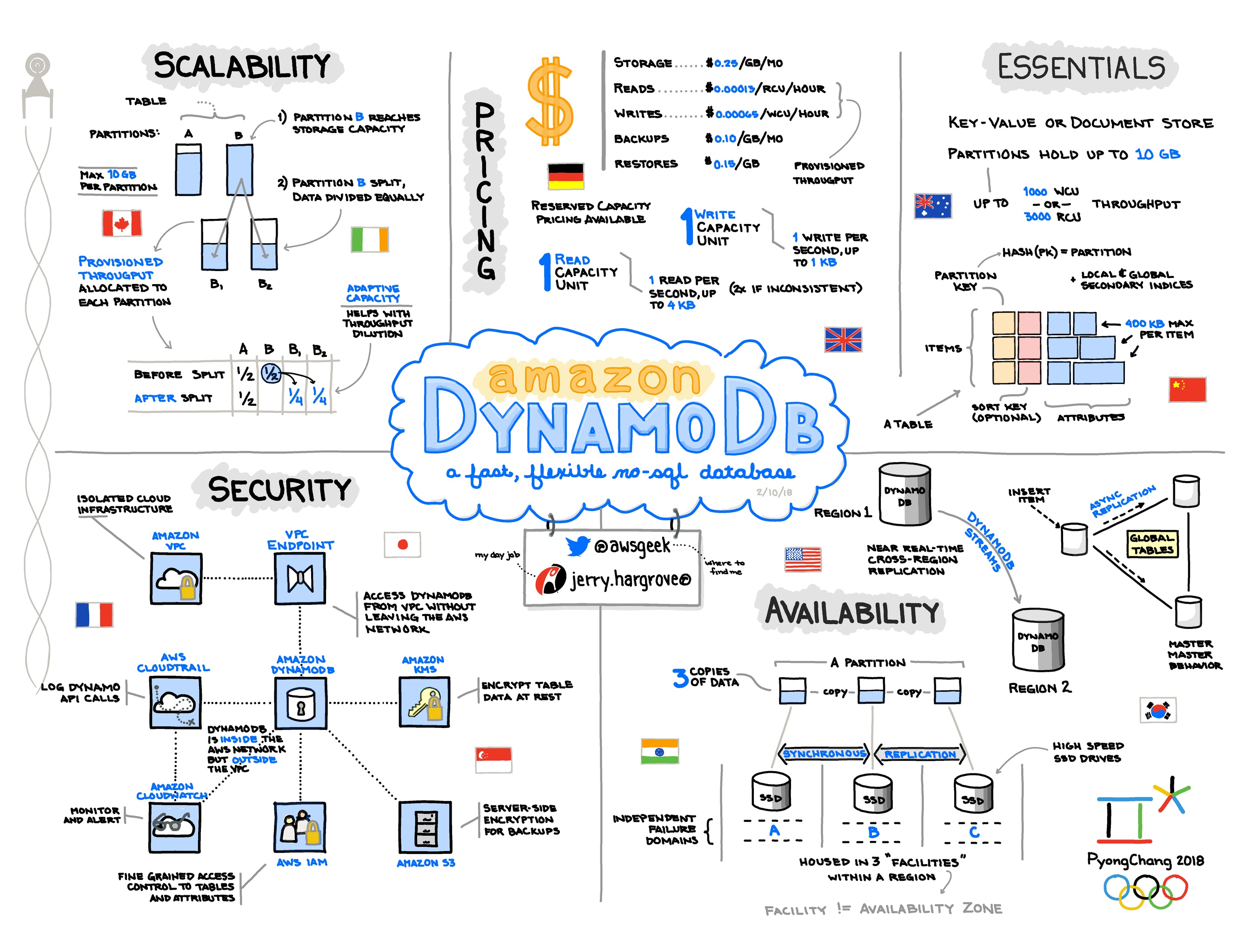
Amazon DynamoDB is a fully managed NoSQL database service provided by AWS that offers high-performance, low-latency, and distributed data storage across multiple regions. It is specifically designed to handle large-scale workloads and cater to applications requiring consistent, reliable performance even when dealing with vast amounts of data. Professional developers and IT administrators rely on DynamoDB for applications needing scalability and resilience.
Use Cases
DynamoDB is versatile and suits various application domains. It is a popular choice for web and mobile applications that demand high throughput and low latency, such as gaming leaderboards, real-time bidding platforms, or social media feeds. It's also suitable for IoT data storage, session management, and key-value pair storage. Its ability to handle millions of requests per second makes it an excellent choice for highly scalable businesses.
Pricing
Amazon DynamoDB pricing is based on the resource utilization of the database. It comprises charges for read and write operations, storage, backups, and data transfers. There are two capacity modes available: On-Demand and Provisioned. On-Demand charging is based on the number of read and write requests made by the application, while Provisioned refers to pre-allocated read and write capacity units. Developers can choose whichever mode best suits their operational requirements, with the flexibility to use Auto Scaling to automatically adjust capacity based on application needs. Understanding and estimating your application workload helps in selecting the right pricing plan, ultimately managing costs effectively.
Scalability
Scalability is one of the central features of DynamoDB. It is designed to cater to workloads of any size, from a few requests per day to millions per second. Automatic partitioning spreads data across multiple servers, providing seamless data distribution and balanced query loads. DynamoDB automatically increases or decreases partition capacity in response to your application traffic, ensuring that performance remains constant even as data attempts to increase exponentially. This elasticity allows developers and administrators the freedom to focus on developing and optimizing their applications rather than worrying about infrastructure bottlenecks.
Availability
Amazon DynamoDB offers high availability with its data replication model across multiple AWS Availability Zones within a region. This ensures that the database remains accessible even in the case of hardware or software failures. DynamoDB's architecture provides built-in fault tolerance, which reduces the complexities associated with configuring and managing high-availability setups. The “Global Tables” feature enables multi-region replication for globally distributed applications, allowing for quick and seamless failovers with no user impact.
Security
Securing your data is of paramount importance, and DynamoDB offers several features to this end. Data encryption is enabled at rest using AWS Key Management Service (KMS), ensuring that your data is secure at the storage level. Fine-grained access control with AWS Identity and Access Management (IAM) policies allows you to define permissions for accessing specific data items or tables. The service also supports VPC endpoints, meaning data can remain within the AWS network without needing to traverse the public internet. Integration with AWS CloudTrail offers logging and monitoring capabilities for tracking operational and access activities.
Competition
In the cloud services ecosystem, several alternatives to Amazon DynamoDB are provided by other major providers. Google Cloud offers Firestore, a managed NoSQL document database service that provides similar scalability, ease of use, and global replication capabilities. Microsoft Azure provides Cosmos DB, a globally distributed, multi-model database service that offers enterprise-grade security and SLA-backed performance. Alibaba Cloud has TableStore, a fully managed NoSQL database service designed for high-availability applications, offering time-series and tabular data support.
In summary, Amazon DynamoDB remains a leading choice for developers and IT administrators looking for a high-performing NoSQL database with rich features around scalability, availability, and security. While it is part of a competitive landscape with other cloud providers offering similar solutions, DynamoDB’s integration with the extensive AWS ecosystem often makes it a preferred option for many cloud-native applications.
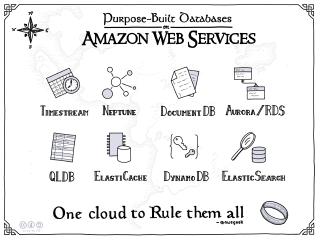 AWS Purpose Built Databases
AWS Purpose Built Databases
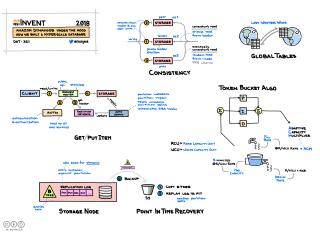 Amazon DynamoDB Under the Hood
Amazon DynamoDB Under the Hood
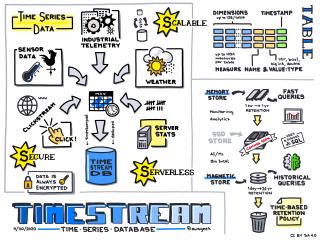 Amazon Timestream
Amazon Timestream
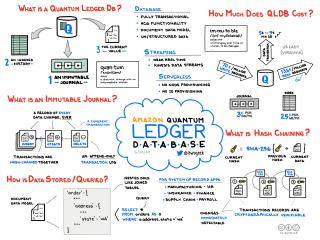 Amazon QLDB
Amazon QLDB